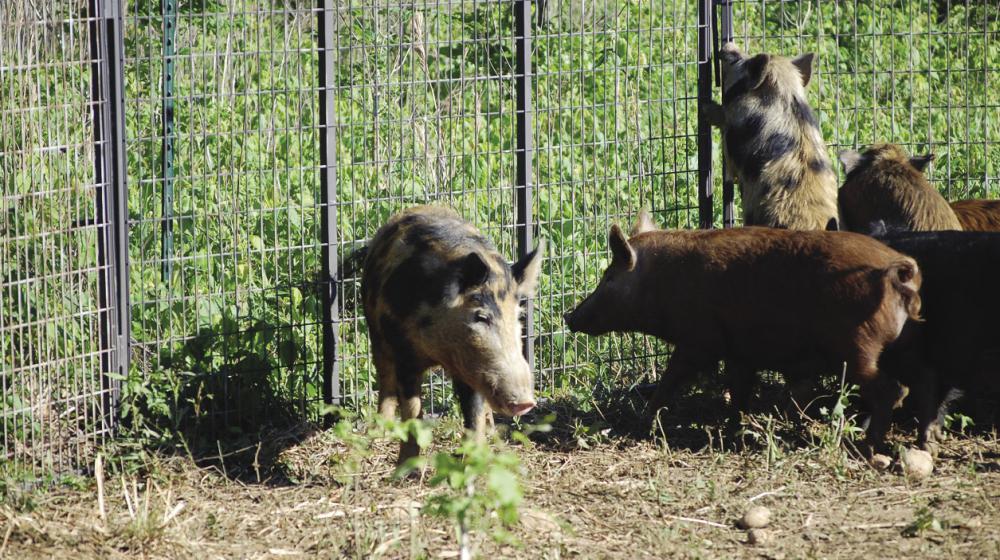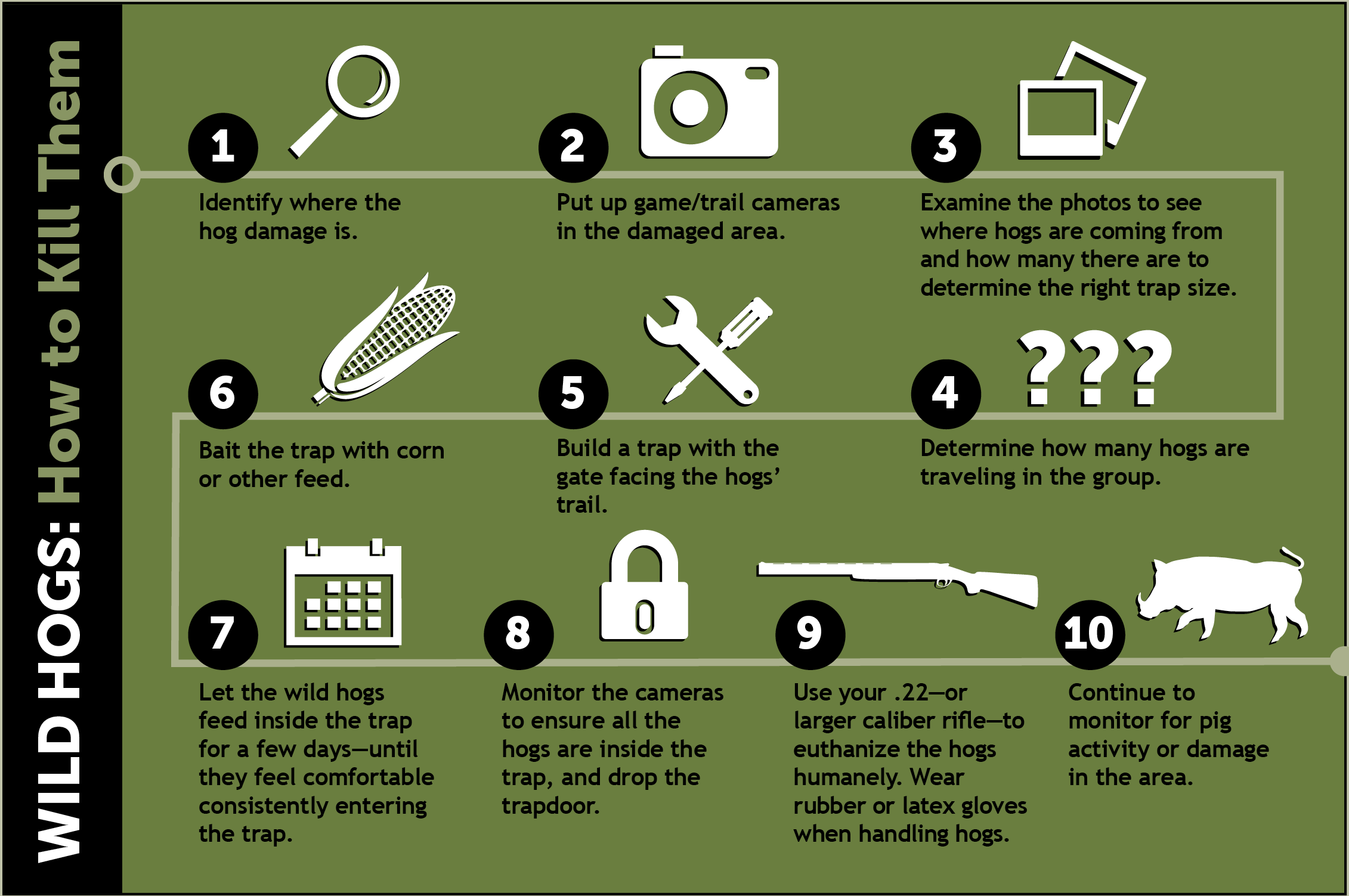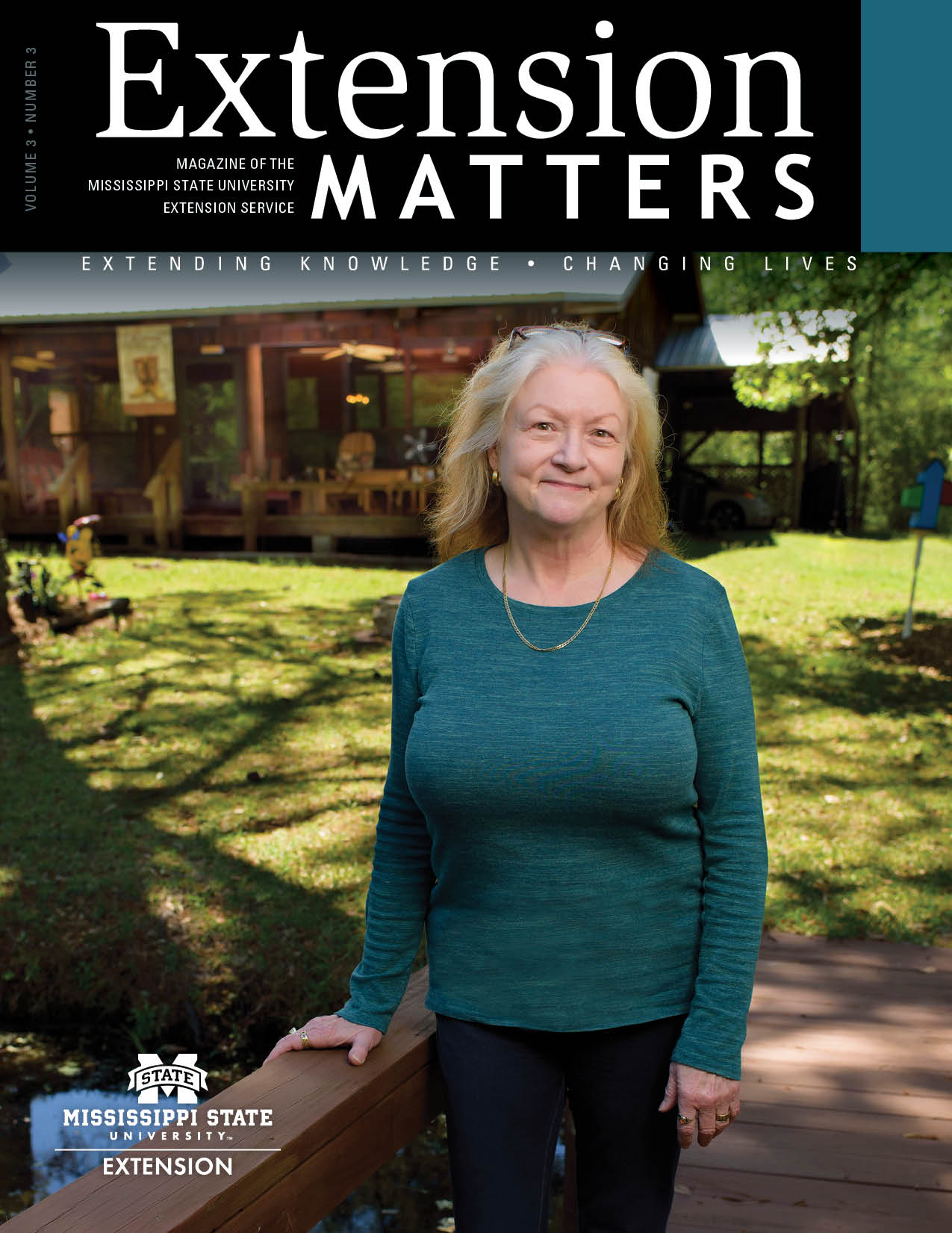Going Hog Wild


Producer Eliminates Major Pests
Story by Leah Barbour • Photos by Kevin Hudson and Steven Tucker
Trevor Garrett stays busy. He divides his days between farming soybeans with his father, Johnnie Ferrell Garrett, and working as a research associate at Mississippi State University's Pontotoc Ridge–Flatwoods Branch Experiment Station.
He divides his nights between sleeping and killing wild hogs in the nexus of Lafayette, Union, and Pontotoc Counties. Over 9 months, Garrett removed 80 hogs, and he shared the resulting hundreds of pounds of pork with his neighbors.
“If I can't find someone who wants to eat the pork, I will dig a hole and bury the pigs I put down, but I’ve always been able to give them away,” he says. “If you look at the history of Mississippi, we were keeping the hog population in check, but that population is on the increase.
"If you want to be a part of solving the wild hog problem, seek the advice of Extension’s North Mississippi hog man, Steven Tucker.”
Garrett says he has known about the MSU Extension Service’s agricultural and natural resource programs his whole life. He works at the branch station, operated by the Mississippi Agricultural and Forestry Experiment Station, a longtime Extension research partner.
However, when Garrett first determined he needed to kill the wild hogs destroying his crops, he thought he could do it on his own.
He and his father first noticed wild hog damage to a soybean field in 2014, and the trouble progressed in 2015 when the family was forced to replant a few rows.
“In 2016, as soon as we left the field with the planter, the hogs would come down the rows at night. They destroyed 15 acres in two nights,” Garrett remembers. “My first course of action was to park on the field edges and wait for them to come out after dark.
KNOW THE ENEMY
Wild hogs...
-
travel in groups, called "sounders."
-
eat anything.
-
have no predators other than humans.
-
reproduce rapidly and can produce two large litters per year.
-
learn quickly how to avoid hunters and being captured.
“I think we ended up killing one hog out of the 30-something we had. We did that for a week, and I knew we had to do something different,” he says. “I needed to talk to Steven.”
Trapping wild hogs is a process, Tucker explains. He visited Garrett’s soybean field to assess the damage, and Tucker recommended Garrett place game cameras near the hogs’ trail of destruction. Not only would Tucker be able to figure out where the hogs were coming into the field, but he would also be able to discover how many were in the group, also known as a "sounder."
“Then, we followed the baiting regulations from the Mississippi Department of Wildlife, Fisheries, and Parks. We put out food they seem to like—corn, dry corn, fermented corn, sweet potatoes—close to their natural path coming into the field, and they ate it up,” Tucker says. “Then, you build the trap around that spot using the same food. And if you use an electronic gate with the camera that sends pics to your phone, you wait until you get every single hog inside the trap, and you use your cellphone-detonated gate, and it’s down.”
Garrett uses his trusty .22 to finish the job.
Transporting wild hogs for hunting is illegal, he warns. They are not game animals; they are destructive pests like fire ants. They carry diseases dangerous to humans, pets, and livestock.
“If you don’t try to get the populations down, anything else you want to hunt will be run out of the area. Then, the hogs will leave, and eventually, you’ll be left with nothing,” Garrett emphasizes. “It doesn’t matter to the hog what it eats: baby deer, rabbit, anything it can catch. I hate to see people losing money because of this wild hog damage.”
Killing the hogs is the only solution, he and Tucker agree, and sport hunting alone is not nearly as effective as trapping and killing them. Acting now can help preserve the Garretts' farm—and farms all over Mississippi—for future generations.
To report damage and develop eradication strategies, contact your local Extension agent through county offices or extension.msstate.edu. For state regulations on controlling wild hogs, contact the Mississippi Department of Wildlife, Fisheries, and Parks at mdwfp.com.



